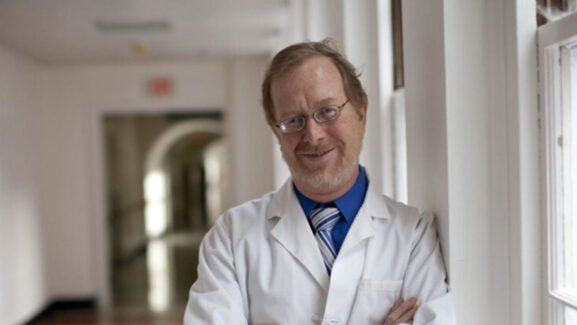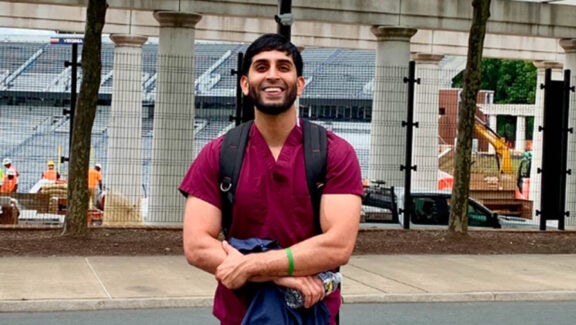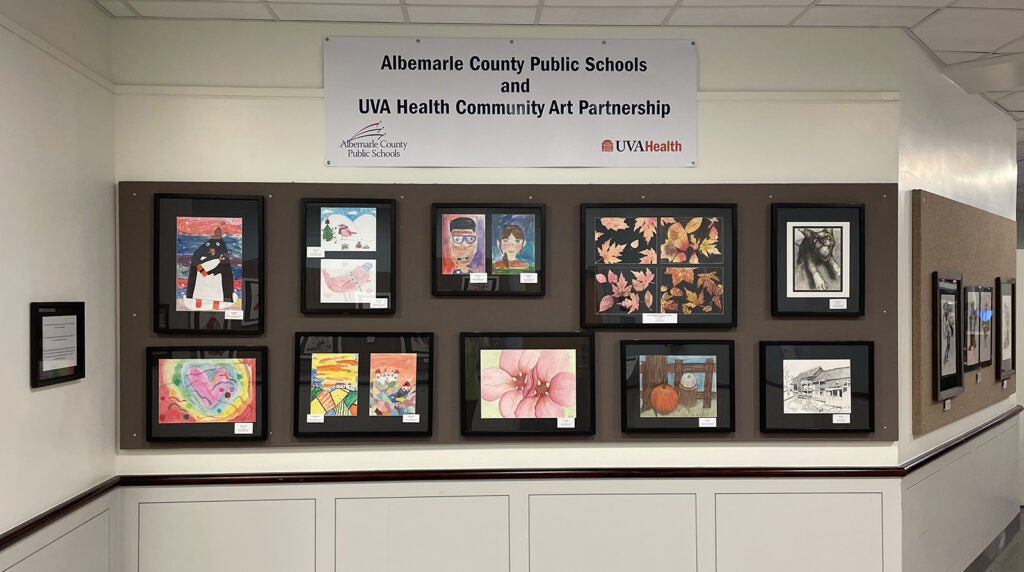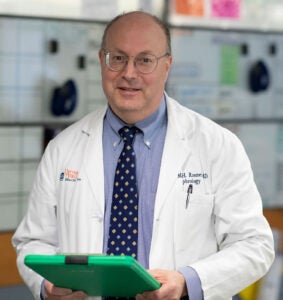
UVA Health Community Update
This monthly community newsletter from Dr. Mitchell Rosner, Acting Executive Vice President for Health Affairs, highlights how UVA Health serves our patients and the community. To stay up to date on operations, clinical services, and research efforts featured in UVA Health Community Update, subscribe here.
Dear Friends of UVA Health,
I hope to take a moment in this newsletter to introduce myself to the community and express my gratitude and excitement for the opportunity to serve in a new capacity at UVA Health. For the last 20 years, I have worked as a physician faculty member and clinical leader within the UVA School of Medicine. Central Virginia has been a wonderful place to raise my family, and I deeply value the connections I have made over the years — both within UVA and the greater Charlottesville area. I am proud to call this community home and look forward to contributing in new ways as the acting Executive Vice President for Health Affairs.
In this monthly newsletter, I look forward to continuing the tradition of sharing updates on our operations, medical advances, and research milestones — all of which reflect the remarkable commitment of our team. I believe our health system’s strength comes from its people — those who consistently ground their work in deep dedication to our mission and show up every day with the utmost professionalism and an unwavering focus on providing the best care for our patients.
I am truly grateful and honored to have the opportunity to lead and serve our communities. Please don’t hesitate to reach out or share a comment via the link at the bottom of this newsletter.
News Feature
AI Breakthrough Identifies Potential Heart Failure Treatment
UVA School of Medicine researchers have used artificial intelligence (AI) to find a surprising new way to help prevent heart failure, a leading cause of death in the United States. Their new tool, called LogiRx, helps scientists understand how drugs affect the body. Using this tool, they discovered that escitalopram — a common antidepressant — may also help protect the heart by preventing harmful changes that can lead to heart failure. Because escitalopram is already widely available and proven safe, this discovery could one day provide a simpler, more affordable way to reduce heart failure risk. With heart failure affecting millions of Americans each year, this breakthrough offers hope for improving heart health and preventing serious complications. Kudos to Dr. Jeffrey J. Saucerman, PhD, and his team, on this innovative discovery.
Other News
Research-Based Advice to Lower Your Dementia Risk
At UVA Health, we are increasingly focused on studying dementia, a growing public health concern. It is predicted that dementia cases will double to 1 million diagnosed annually by 2060, with new cases in Black communities nearly tripling. We understand the urgent need for learning more about this disease. Dr. Anelyssa D’Abreu, an expert in geriatric neurology and an associate professor of neurology in the UVA School of Medicine, is leading efforts to understand dementia's risk factors and address disparities in healthcare. She recently shared insights on how people can lower their risk of getting dementia:
- Avoid smoking and reduce alcohol use.
- Manage your hearing loss, as there is an association between hearing loss and dementia — and some evidence that tools like hearing aids can prevent cognitive decline.
- Exercise regularly — at least 150 minutes a week, divided into three to five sessions.
- Treat high blood pressure and manage diabetes.
UVA Health Developmental Pediatrician: Kids Should Do Chores
In a recent Scientific American article, UVA pediatrician Dr. Rebecca Scharf shared valuable insights on how chores can positively impact children's development, fostering a sense of accomplishment and competence. Dr. Scharf’s research highlights that children who consistently contribute to household tasks often report feeling happier, more capable, and even stronger academically. Her findings are an encouraging reminder for parents and caregivers that involving kids in age-appropriate responsibilities can support their growth and well-being. Here are key takeaways for parents from Dr. Rebecca Scharf’s interview:
- Chores Build Confidence: Children who regularly participate in household tasks often feel more capable, accomplished, and happier with their lives.
- Age-Appropriate Responsibilities Matter: Even young children can benefit from simple chores like setting the table or putting away toys, which promote motor skills, language development, and social negotiation.
- Chores Encourage Prosocial Behavior: Contributing to family tasks helps children develop a sense of purpose and responsibility, fostering positive relationships and teamwork.
Student Art Exhibition Brightens UVA Health University Medical Center Lobby
I am excited to share a new collaboration between UVA Health and Albemarle County Public Schools that brings the vibrant creativity of local students into our University Medical Center lobby. This rotating art exhibition, which will run through November 2025, showcases framed artwork from students across grades K-12. Every 10 weeks, we’ll feature a new collection, representing a variety of styles and mediums. If you visit the hospital this year, we hope you will take a moment to enjoy this dynamic display of student talent. We’re proud to partner with Albemarle County Public Schools to provide this meaningful experience for our community, and I’m grateful to Anne Brown, UVA Health's talented art program coordinator, for organizing this thoughtful exhibit.
I want you all to know that we appreciate your ongoing trust and partnership. I wish you excellent health as we enjoy a beautiful spring season. Thank you for your support of UVA Health!
With best wishes,
Mitch
Mitchell H. Rosner, MD, MACP, FRCP
Acting Executive Vice President for Health Affairs, University of Virginia
Henry B. Mulholland Professor of Medicine
Latest News








